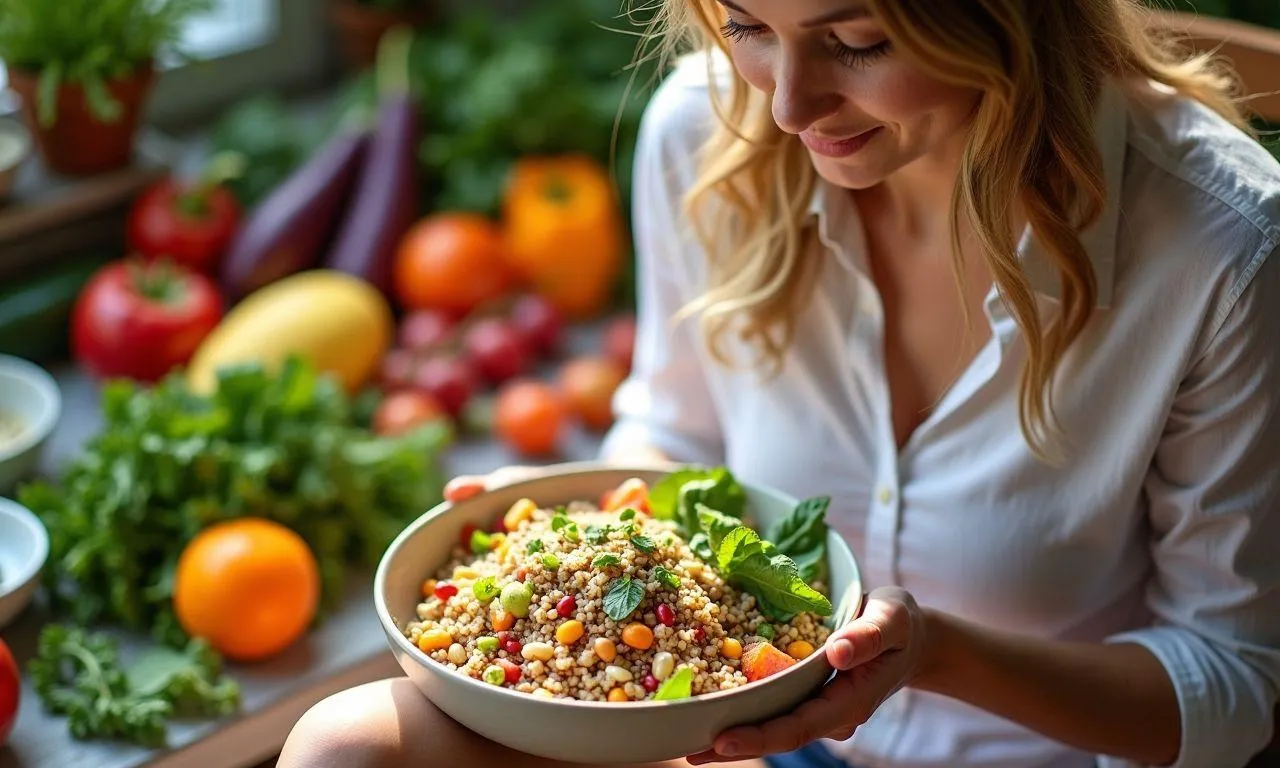- Mateusz Pawlak
- October 23, 2025
- 4min.
- Report
Protein in the Vegan and Vegetarian Diet
In recent years, plant-based diets, particularly vegan and vegetarian, have gained considerable popularity. The majority of people decide to cease consuming meat for various reasons such as ideology, health, or taste preferences. However, a change in diet should be made consciously to ensure it is safe and healthy for the body.
Table of Contents
1. Is the practice of vegetarianism safe for health?
According to the American Dietetic Association and the Polish Ministry of Health, a carefully balanced vegetarian diet is entirely safe for health, meets nutritional needs in every life stage and can bring health benefits in terms of prevention and treatment of certain ailments. Well-planned meatless diets are suitable for individuals in all life stages, including pregnancy and breastfeeding, infancy, childhood, adolescence and for athletes. However, it should be emphasized that this applies only to diets that are balanced and reasonably composed, which enables the avoidance of deficiencies in macro- and micronutrients.2. Protein as the most controversial ingredient in a meat-free diet
Protein is made up of amino acids, and in order for our body to function properly, we need to supply all 20 of them: 8 exogenous acids, which our body cannot synthesize, and must be supplied in a ready-to-eat form, and 12 endogenous acids, which can be synthesized from our other meat-free diet. In this context, we distinguish between complete proteins, which contain all the exogenous amino acids, and incomplete proteins, which do not have a complete amino acid composition. Foods that contain complete proteins include meat, dairy products, and eggs, as well as certain types of algae such as spirulina and chlorella, and grains such as rice and amaranth. To provide our body with all the necessary nutrients, we should combine foods so that they complement each other in their amino acid composition. Protein should provide 10-15% of daily energy intake, which corresponds to about 0.8-1 g/kg body weight per day. For athletes and physically active people, protein intake should be higher and adapted to individual needs. In the vegetarian diet, protein intake is often insufficient and can lead to protein deficiency. This is often due to the lower digestibility of plant proteins compared to animal proteins and the incorrect preparation of plant raw materials before consumption.3. Can you avoid protein deficiencies if you are a vegetarian?
Specialists recommend that when meat products are removed from our diet, for every 2000 calories we provide to our body, we should eat: • 1 cup of cooked legumes such as peas, beans, lentils, and whole grain rice; • 1.5 cups of cooked cereals such as buckwheat, oats, barley, whole grain rice; • 3 cups of cooked vegetables, including half a cup from the cabbage family; • 1 bowl of vegetable soup; • 2.5 cups of fresh vegetables, including half a cup of leafy greens such as spinach, kale, and basil; • 600 g of fresh fruit, alternatively a small handful of dried fruit; • 3 tablespoons, about 45 g of nuts (e.g. walnuts, hazelnuts, almonds) or seeds such as pumpkin seeds, sunflower seeds, or almonds; • 1 tablespoon of ground flax seeds, eaten cold, e.g. in salads or on bread; • ½ cup of dry, whole grain flakes, e.g. oat flakes, rye flakes, or alternatively 2 slices of whole grain bread; • 2 cups of dairy products. Recommended products are e.g. plant milk or yogurt: soy, rice, almond, best fortified with calcium.
Latest Nutrition Plans

Express Shape – 1600 kcal Protein Nutrition Plan – 3 Weeks to a Healthier You

Accelerated Transformation - a protein-rich plan with 1600 calories for 14 days

Revolutionize Your Body - A 7-Day Fast Protein Plan for Extraordinary Weight Loss

Ultra-Low Carb Adventure - A 4-Week, 1600 kcal Plan for a Lighter, Healthier You

Energize Your Life - A 4-Week High-Protein Slimming Plan with 1500 kcal for Energy and Weight Reduction

Sven's Plan - A 4-Week, 1500 kcal Slimming Program for Healthy Energy and Transformation

Express diet 1300 kcal - quick reduction in 4 weeks according to Sven

Step Up Your Life - A 4-Week, 1400 kcal High-Protein Slimming Plan

Fit Body - A 4-Week, 1400 kcal Healthy Slimming Diet for Optimal Results

Slim Plan 28 - A 28-Day, 2000 kcal Weight Loss Plan for Optimal Results

Dream Shape - A 4-Week, 1800 kcal Weight Loss Plan for Lasting Change.

Protein Power 4 - A 4-Week, 2200 kcal High-Protein Diet for Energy and Optimal Weight Loss

